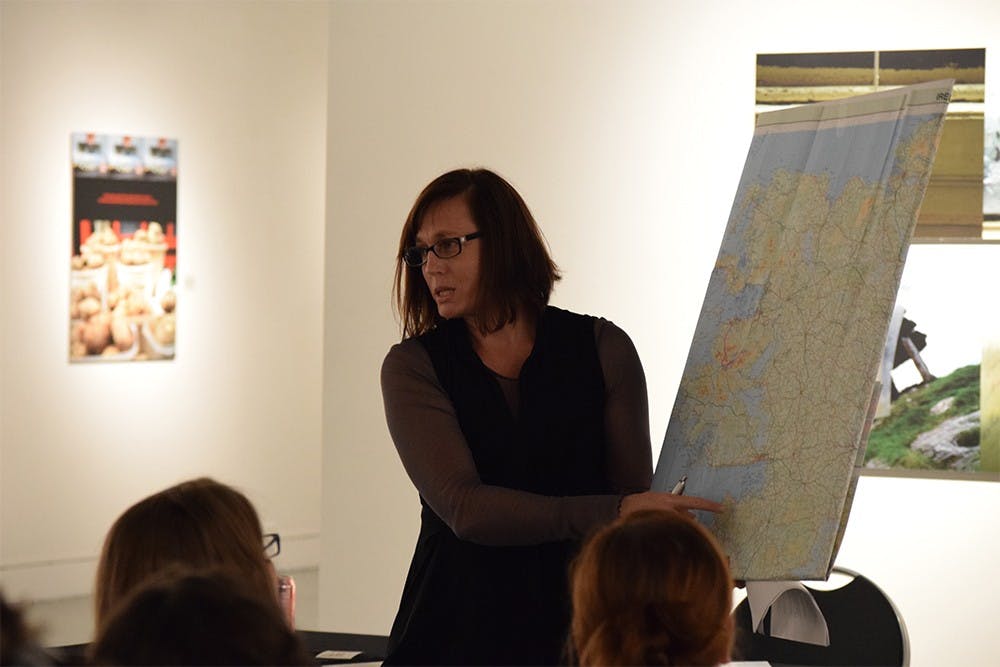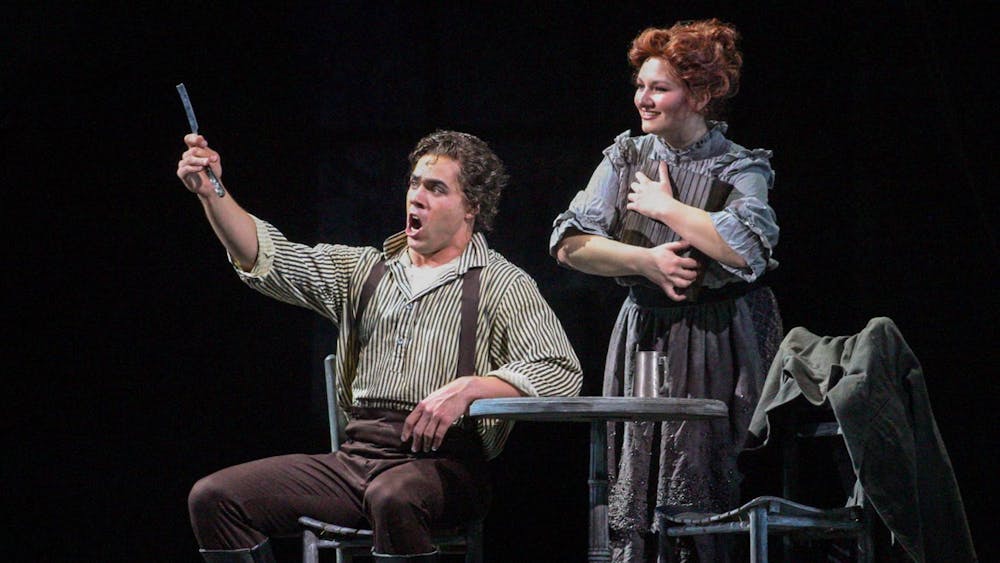O’Dell delivered a lecture on her work Friday in the Grunwald Gallery surrounded by the photographs of transparencies against the Irish countryside and quotes she picked out from careful research.
“I spent a long time trying to title this project,” O’Dell said. “For a while, it was ‘Migrations,’ which came to me but was too general.”
The photographs explore the legacy of the Irish famine through the eyes of some of the people who experienced the suffering firsthand, O’Dell said. The project began as a deeper look into family archives that sparked a creative interest in the photographer.
Diaspora, or displacement, is one of the overarching themes explored in this exhibition.
The narrative is one of longing O’Dell said, something she said she was familiar with in her life in the Midwest along with displacement.
“I grew up with what I described as an inheritance of longing,” O’Dell said. “I heard stories from my grandmother about her great-great grandmother, she was from the north. I grew up with a very vague understanding of my Irish family and legacy.”
The little she did know, O’Dell said, came from brief scribbles on the back of a postcard or the few stories her older family members shared.
The longing to learn more about the family encouraged further exploration into her past, O’Dell said. She said she traveled to Ireland in 2005 and delved into research on diaspora and the famine, topics still under-discussed among the youth in the country.
By looking into these stories, O’Dell said, she was also looking for what was missing from her life growing up.
“This inheritance of longing drove me to Ireland and inspired this project,” O’Dell said. “I realized I was searching for home. Diaspora scholars talk about the mythologizing of homeland. For my family and others, Ireland represented a utopia — a lost homeland.”
O’Dell said this myth of utopia includes the idea that situations would improve drastically in another land. She went on to discuss scholarly research on diaspora, especially when it comes to Irish migration patterns.
O’Dell said she frequently drew upon the advice of author Ciarán Ó Murchadha during her time in Ireland.
In terms of Ireland’s willingness to forget the famine, O’Dell said memory ethics are the driving force in that mindset. She quoted President Michael D. Higgins’ speech at the famine commemoration event a few years earlier.
“One of the phrases that struck me was when he said, ‘Being there that day was an exercise in the ethics of memory,’” O’Dell said. “I just love that. For a country to be able to remember, to be allowed to remember, is an ethical act.”
Grunwald Director Betsy Stirratt said seeing the exhibition fully assembled allowed her to see the unity of art and the attention to history.
“When I saw the show coming together, it was a perfect combination of someone who has amazing visual sense and has done the research behind this work and really spent time learning about the issues she’s covering here,” Stirratt said.
The stories behind the photographs provide another level of interest, Stirratt said.
“Her ability to go to archives and talk to people, to get the information behind the creation of this whole body of work — that, to me, is what is so interesting about this show,” Stirratt said. “It’s the perfect melding of content and beauty.”






